
In commemoration of German reunification




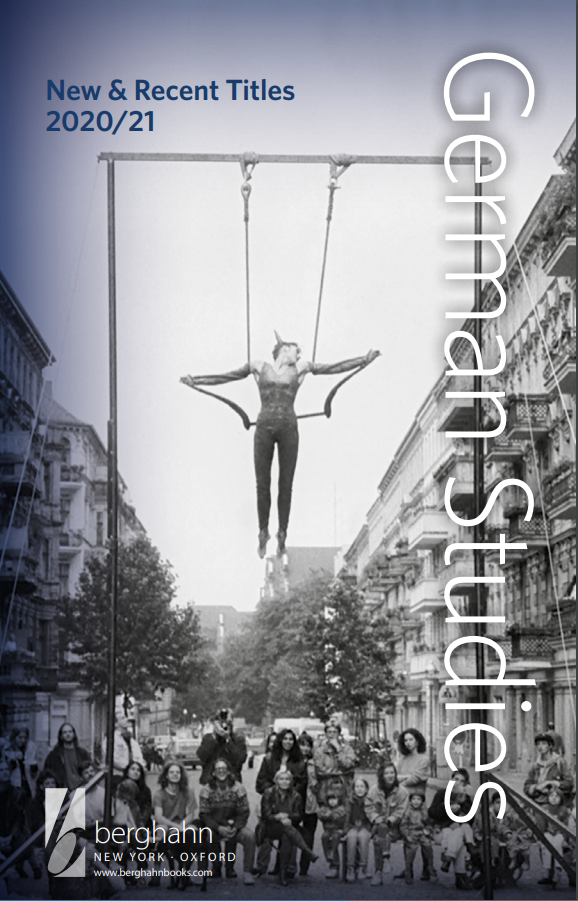
We are pleased to invite you to visit our virtual stand at the German Studies Association annual meeting taking place online from 30 September to 4 October 2020. Please see below for information about special offers from Berghahn Books for titles purchased through our website.
For anyone who would have liked to discuss their manuscript with us at the conference, our editors are happy to arrange for a chat over email or virtually. Visit our GSA page for virtual booth hours or contact Chris Chappell to set up a meeting.
Visit Berghahn’s GSA page for featured books and journals, virtual booth hours, and more.
Enjoy 30% off all German Studies titles (in both print and eBook formats) until 6 November, 2020! Read our newsletter for recommended titles and discount information.
Catch us at the GSA exhibit hall and visit our virtual booth here.

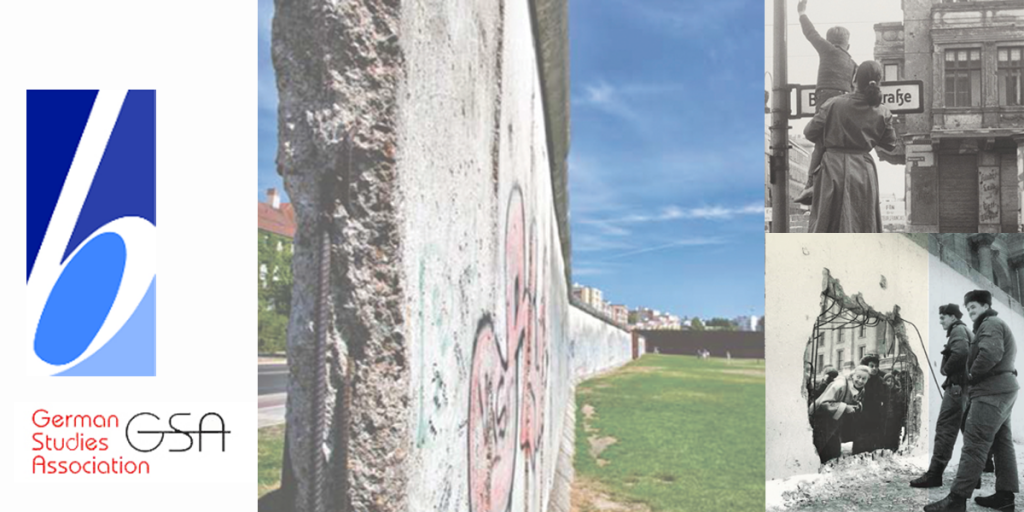
On October 7th, 1949, the Democratic Republic of Germany was proclaimed, dividing Germany between East and West.
Seventy years later, we find ourselves in the days leading up to the German Studies Association’s annual meeting. A great deal has happened between 1949 and now, and we are delighted to present titles that provide comprehensive histories of this time period.
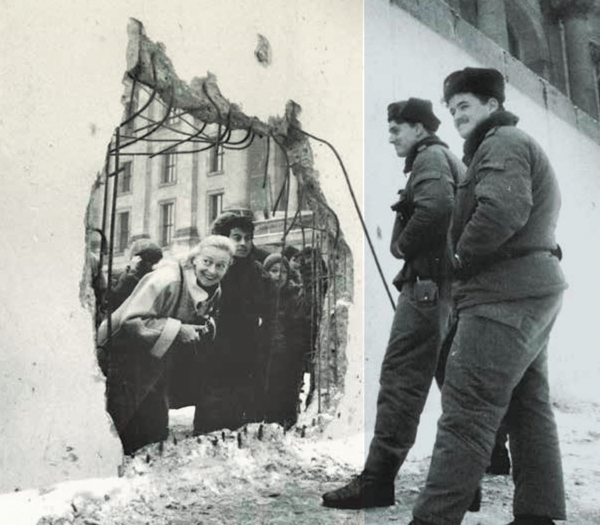
This week marks the fifty-eighth anniversary of the construction of the Berlin Wall. The Iron Curtain was assembled in the middle of Berlin in August 1961 and expanded over the following months to ultimately divide West Berlin from the surrounding East Germany, prohibiting East Germans to pass into West Germany for decades. Browse our relevant titles on the history and ramifications of a divided Germany.
Continue reading “A Divided Germany”Two weeks after the fall of the Berlin Wall, on 28 November 1989, West German Chancellor Helmut Kohl announced a 10-point program calling for the two Germanys to expand their cooperation with the view toward eventual reunification. On 18 May 1990, the two German states signed a treaty agreeing on monetary, economic and social union. On October 3rd, 1990, Federal Republic of Germany and the Democratic Republic of Germany were reunited to create one single federal Germany, now celebrated as German Unity Day!
We are also currently offering free access to the article: Politics of Emotions: Journalistic Reflections on the Emotionality of the West German Peace Movement, 1979-1984 in recognition of International Day for the Elimination of Nuclear Weapons until October 10.
Berghahn is honored to present some of the relevant titles on the History of German Unification:
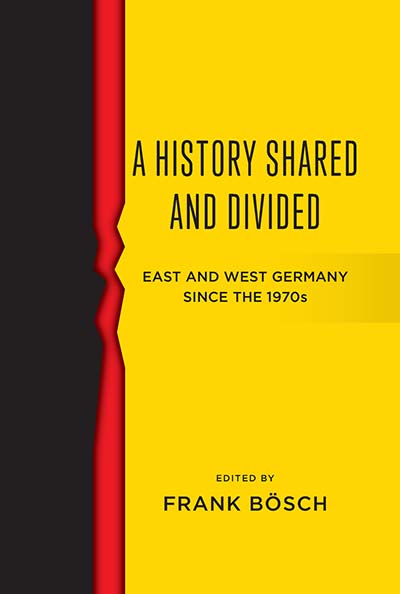 A HISTORY SHARED AND DIVIDED
A HISTORY SHARED AND DIVIDED
East and West Germany since the 1970s
Frank Bösch
Translated from the German by Jennifer Walcoff Neuheiser
 We are delighted to inform you that we will be attending the annual German Studies Association conference in Pittsburgh PA, on September 27th-30th, 2018. Please stop by our stand to browse our latest selection of books at discounted prices & pick up some free journal samples.
We are delighted to inform you that we will be attending the annual German Studies Association conference in Pittsburgh PA, on September 27th-30th, 2018. Please stop by our stand to browse our latest selection of books at discounted prices & pick up some free journal samples.
Berghahn Books is very pleased to invite you to a wine reception at the GSA co-hosted with the DEFA Film Library, University of Massachusetts Amherst. Please join us on Friday, September 28th from 5-6pm in the book exhibit area to celebrate the publication of SCREENED ENCOUNTERS: The Leipzig Documentary Film Festival, 1955-1990 by Caroline Moine, the first volume in our new Film and the Global Cold War series.
If you are unable to attend the conference, we would like to provide you with a special discount offer. In celebration of the New Academic Year, receive a 50% discount, until 30th September 2018 on all German Studies titles found on our website. At checkout, simply enter the discount code GSA18.
Browse our new 2018-19 German Studies Catalog online or visit our website for a complete listing of all published and forthcoming titles. Continue reading “Berghahn will be at the German Studies Association 2018 Conference!”
On August 13, 1961, Berlin woke up to a shock: the East German Army had begun construction on the infamous Berlin Wall. The Wall was initially constructed in the middle of Berlin, and expanded over the following months. It entirely cut off West Berlin from the surrounding East Germany, prohibiting East Germans to pass into West Germany.
The Eastern Bloc claimed that the wall was erected to protect its population from fascist elements conspiring to prevent the “will of the people” in building a socialist state in East Germany. In practice, the Wall served to prevent the massive emigration and defection that marked East Germany and the communist Eastern Bloc during the post-World War II period. The Berlin Wall came to symbolize the “Iron Curtain” that separated Western Europe and the Eastern Bloc during the Cold War.
Browse Berghahn relevant titles on History of divided Germany:
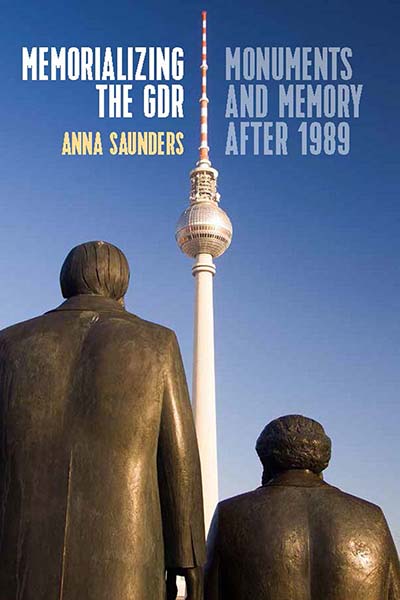 MEMORIALIZING THE GDR
MEMORIALIZING THE GDR
Monuments and Memory after 1989
Anna Saunders